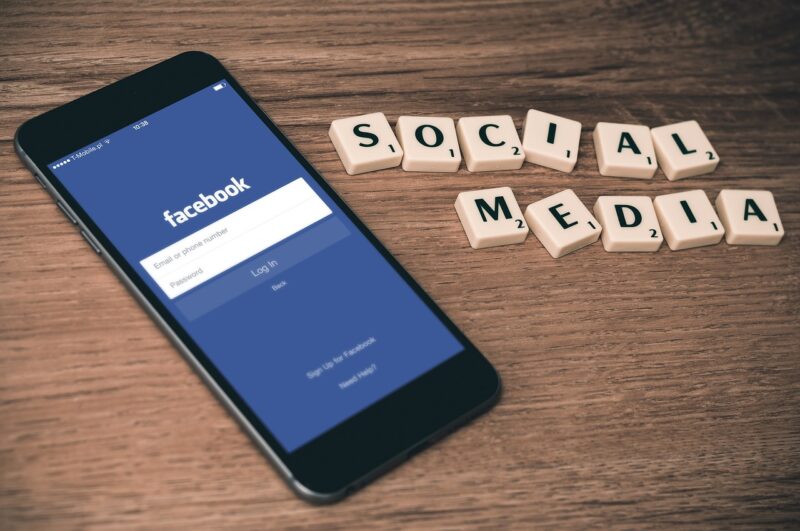The Problem with Comparing Yourself Online: Why Social Media Is Distorting Reality
November 9, 2024

In an age defined by connectivity, social media platforms have become an intrinsic part of daily life. From Instagram to Facebook to TikTok, the ways we communicate, share, and perceive ourselves and others have shifted dramatically. This transition has brought about numerous social phenomena, one of which is the pervasive tendency to compare ourselves to others.
But what exactly is the impact of this comparison culture fostered by social media? In this comprehensive article, we will delve into how social media distorts reality, the effects of constant comparison, and ways to cultivate a healthier self-image.
1. The Landscape of Social Media Comparisons
Social media offers an inviting platform to share life’s highlights, achievements, and experiences. It allows users to project a curated version of their lives that can often be misleading or incomplete.
Examples of common social media platforms include:
- Instagram: Focuses primarily on images and videos where users showcase idealized moments.
- Facebook: Provides a space for sharing life updates and connecting with friends.
- TikTok: A platform for short video content that often emphasizes entertainment and trends.
While these platforms can help connect people, they also create an environment ripe for comparison. Users scroll through endless feeds, witnessing the “highlight reels” of others’ lives, often leading to unrealistic expectations regarding their own lives.
2. The Psychological Impact of Social Media Comparisons
Numerous studies have pointed to the negative psychological effects of comparing oneself to others online. These can include anxiety, depression, and diminished self-esteem. The issue lies in how social media presents a distorted view of reality, characterized by:
- Curated Content: Users often share only their most flattering moments, creating a perception that everyone else is living a more exciting or rewarding life.
- Unrealistic Standards: Constant exposure to beauty standards, lifestyle milestones, and social validations can lead individuals to feel inadequate or unsuccessful by comparison.
- Social Validation & Likes: The success of social media posts frequently translates to the number of likes or comments received, leading users to derive their self-worth from virtual interactions.
These factors can contribute to a cycle of feeling inferior, ultimately distorting one’s self-image and overall outlook on life.
3. The Origins of Comparison: Social Comparison Theory
The “Social Comparison Theory,” pioneered by psychologist Leon Festinger in the 1950s, suggests that individuals evaluate their own abilities and opinions by comparing themselves to others. This concept has gained traction with the advent of social media. In today’s digital landscape, comparison and competition have been heightened due to:
- Ease of Access: With social media, individuals are constantly exposed to the curated lives of peers, influencers, and even celebrities, which can exacerbate feelings of inadequacy.
- Lifestyle Influencers: Many individuals earn a living by creating a fantasy lifestyle that fosters envy. Followers may subconsciously aspire to recreate an ideal that is often unattainable.
- The Rise of Filtered Realities: Apps like Instagram offer filters, enhancing appearance and creating unrealistic visuals that distort users’ perception of themselves and others.
Understanding the psychological underpinnings of social media-induced comparisons is crucial in addressing the broader implications they have on mental health.
4. The Consequences of Constantly Comparing Yourself
The tendency to compare oneself online can lead to significant emotional and psychological consequences, including:
- Anxiety and Depression: Constant exposure to idealized portrayals of others can trigger anxiety and symptoms of depression, particularly if individuals feel they do not measure up.
- Diminished Self-Esteem: Regular comparisons can lead individuals to internalize feelings of inadequacy, leading to unstable self-esteem.
- Fear of Missing Out (FOMO): Seeing friends or acquaintances enjoying experiences that individuals aren’t part of can evoke a deep sense of missing out on life opportunities.
- Social Isolation: Continuous comparison can make individuals feel disconnected from their peers or socially isolated, as they perceive their own lives as less fulfilling.
The emotional toll linked to social media comparisons can profoundly impact individuals’ relationships and daily lives, necessitating effective coping strategies.
5. Strategies for Healthy Social Media Use
Creating a more balanced relationship with social media is crucial for maintaining mental health. Here are several strategies to counteract the negative effects of comparisons:
- Limit Your Time: Set specific times for social media use to avoid endless scrolling, which often sets off a comparison cycle.
- Unfollow Negative Influences: Identify accounts that trigger comparisons and consider unfollowing or muting these users to curate a more positive feed.
- Practice Gratitude: Draw attention to personal achievements and positive aspects of your life, reflecting on your journey and honoring your successes.
- Engage Authentically: Interact with friends and communities that promote authenticity and vulnerability, fostering a healthy social environment.
By being conscious about social media use, individuals can shift their focus away from comparison and foster self-compassion and acceptance.
6. Embracing Authenticity in a Filtered World
In a world where every aspect of life can be filtered, embracing authenticity is more critical than ever. Several ways to promote an authentic lifestyle include:
- Share Real Moments: Encourage sharing unfiltered, authentic moments of life, allowing others to see the beauty in the imperfections and realities of existence.
- Promote Positive Messages: Use social media as a platform to inspire uplifting thoughts or share personal struggles, thereby fostering a sense of community and connection.
- Encourage Balance: Support others in finding balance in their social media use, emphasizing that it’s okay to take breaks from the pressure of social media.
Ultimately, authentic connection and open conversations can dispel the misleading portrayals that dominate social media landscapes.
Conclusion
The phenomenon of comparing ourselves online continues to shape how we view ourselves and others. Social media creates a complex web of perceptions that can distort reality, lead to harmful psychological outcomes, and impact self-esteem. By understanding the implications of these comparisons and employing healthier social media habits, we can work towards a more authentic understanding of ourselves and others.
Moving forward, fostering a culture of authenticity and compassion online can mitigate the pressure of constant comparison, ultimately leading to a more positive and supportive community for all users. Recognizing that social media is merely a slice of reality allows individuals to step back, appreciate their path, and prioritize mental well-being above digital validation.








